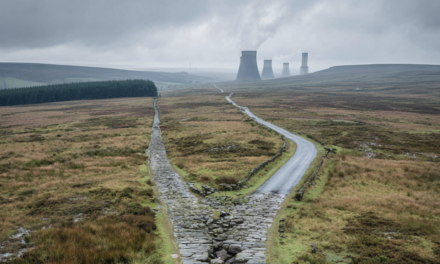If the world shaped by the Enlightenment was rooted in ideals of human rights, progress, and individual freedom, do the pressing crises we face today demand a powerful shift towards a philosophy of sustainability? If that’s the case, what transformative vision should guide us towards a sustainable future?
Expanding, Not Replacing: Evolving the Enlightenment for the 21st Century
The Enlightenment transformed human civilisation. It challenged dogma, placed reason and science at the centre of knowledge, and championed individual freedom, human rights, and the pursuit of progress. These values have shaped the modern world, giving rise to modern forms of democracy, scientific discovery, and economic prosperity.
But while these ideas powered extraordinary growth, they also contained blind spots. The emphasis on individual autonomy often overshadowed collective responsibility. Progress became synonymous with economic expansion rather than systemic well-being. The pursuit of rights was framed in human-centric terms, often neglecting our embeddedness within the natural world.
As we face ecological breakdown, resource depletion, and widening social fractures, we must ask: are these principles sufficient on their own? Or do we need to expand the Enlightenment’s legacy—to evolve its core ideas so they remain fit for purpose in the 21st century?
A philosophy of sustainability does not discard human rights, progress, or freedom—it builds upon them. It adds dimensions that reflect the realities of an interconnected, living planet. Rather than a rejection, it deepens what we have already learned.
Building Upon the Enlightenment: Three Core Expansions
A philosophy of sustainability does not diminish progress, rights, or freedom. Instead, it enriches them by integrating a fuller understanding of human life within ecological and planetary limits. This can be expressed as follows:
| Enlightenment Principle | Expanded Through Sustainability | New Understanding |
| Progress | + The complexity of the natural world | Evolution (Progress as adaptive, systemic change rather than linear growth) |
| Human Rights | + Participation in a living Earth | Human Responsibilities (Rights gain meaning when balanced with obligations to sustain life) |
| Individual Freedom | + Planetary Boundaries | Regeneration (True freedom comes from living within nature’s constraints, not against them) |
This framework does not abandon the Enlightenment’s foundational ideas but rather deepens them. It recognises that progress is not just technological or economic—it must be ecological and systemic. It acknowledges that rights only function within a stable society and a living Earth. It asserts that freedom must operate within physical and biological realities, not in denial of them.
Why This Shift Matters
For three centuries, humanity has acted as though the Enlightenment’s principles were self-sufficient. But today’s global crises reveal that these ideas, in their original form, were incomplete. They empowered us to master our environment, but not to sustain it. They gave us tools for economic growth, but not for planetary balance.
By expanding these principles, we acknowledge that the Enlightenment was not an endpoint but a beginning—a foundation upon which we must now build a philosophy that integrates planetary realities into human thought and governance.
A Practical Shift: Implications for Governance, Economy, and Ethics
If we embrace this deeper understanding, how might it shape the way we structure our world?
- Governance: Democracy evolves to include intergenerational justice, ensuring the rights of future generations and the planet itself are accounted for in policymaking.
- Economy: The emphasis shifts from GDP-driven growth to regenerative systems, where wealth is measured in well-being, stability, and ecological balance.
- Ethics: Individual freedoms are placed in the context of collective responsibilities, ensuring that choices made today do not diminish the possibilities of tomorrow.
This is not a call to discard the past—it is a call to complete the Enlightenment by integrating what we now understand about the biosphere and the limits of extractive models of progress.
A Moment of Choice
The world we inherited was shaped by ideas that once seemed unshakable. But history tells us that no philosophy remains fixed forever. The values of the Enlightenment—human rights, individual freedom, and scientific progress—have brought enormous benefits. Yet, they were conceived in a world that did not face the crises we now confront.
Today, we stand at a crossroads. Do we continue relying on outdated frameworks, hoping they will somehow adapt to the reality of ecological breakdown and social instability? Or do we take seriously the need for a deeper, richer philosophy—one that builds upon what we have learned and integrates sustainability as a central principle?
What Can We Do?
- Re-evaluate the meaning of progress. What if success wasn’t defined by GDP, but by well-being, resilience, and ecological balance?
- Reclaim responsibility alongside rights. Individual freedoms matter—but how do we balance them with collective responsibility to future generations?
- Support ideas that challenge outdated economic assumptions. From regenerative economics to new governance models, change is already happening. Where can you contribute?
- Expand the conversation. This shift won’t happen through policies alone—it starts with people rethinking what kind of future they want to create.
The Enlightenment gave us reason as a guiding principle. Perhaps now, reason demands that we recognise its limits and seek a deeper philosophy—one that embraces sustainability as its foundation.
What Do You Think?
A philosophy of sustainability does not reject the Enlightenment—it completes it.
Can we evolve our understanding of rights, progress, and freedom to ensure a thriving future?
Let’s explore this together. Share your thoughts below or join the conversation.
Terry Cooke-Davies
2nd Febraury 2025
Profound thanks to ChatGPT(4o) from OpenAI for assistance with this article.






